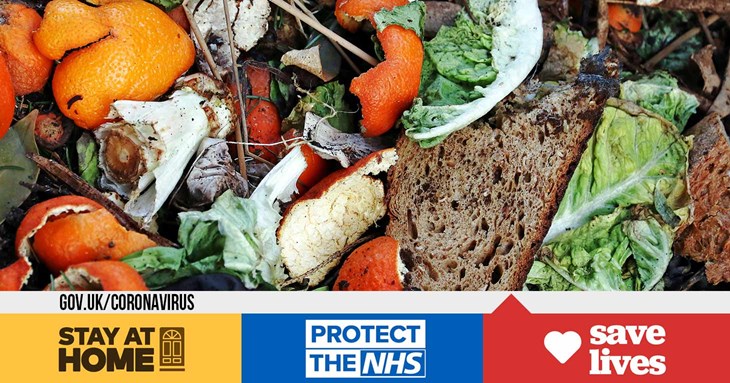Reducing waste during the coronavirus restrictions…and beyond
Published: 30 March 2020

In his regular feature, Denis the Dustcart talks about Reducing waste during the coronavirus restrictions…and beyond.
You can follow Denis on his Facebook page to keep up with information about Recycling issues.
Now, more than ever, it is really important that we all try as hard as we can to reduce as much as possible the amount of rubbish we throw away.
You may have seen the photos going around of stockpiled food thrown out and overfilling black bins in streets around the country.
Aside from the obvious economic, environmental and human problems this poses, there are some simple facts we all need to understand:
- Overfilling bins runs the risk of waste spilling in the streets. This is bad situation under normal circumstances, but it is now vital to avoid – especially since councils are likely to be operating on a reduced cleansing workforce.
- Extra waste means bin lorries filling up sooner and having to make more trips to the tip, increasing the length of rounds significantly. For the sake of the crews, who are working so hard to keep our lives running as normally as possible, we must not let this happen. (And on that note, please do remember to clean the handles of your wheelie bins before and after you put them out!)
- Rubbish disposal costs public money. Now is the time to work together to reduce the burden on the local economy.
- There is also the potential that extra waste would overburden the Energy from Waste plant, resulting in waste going to landfill.
So, how do we reduce waste?
- Many of us will be taking this time to do the DIY we’ve been putting off for years. We mustn’t put the DIY waste in our black bins. We must hold on to it until the recycling centres are able to open again.
- Plan meals. We have to buy only what we know we will eat.
- Make the freezer our friend for fresh produce.
- Batch cook and freeze sauces, stews, etc., in portions. Don’t leave that portion in the pan and chuck it away later, and don’t freeze a big batch of sauce when we will only eat half of it once it’s thawed.
- Store food properly in reusable containers.
- Recycle everything we can. In Exeter, that’s tins, cans, plastic packaging, cardboard and paper. Put out extra recycling in bags labelled ‘recycling’ beside our green bins.
- Hold on to our glass, if we can’t take it to a bottle bank at the supermarket on one of our essential food-shopping trips.
- If we can, we should compost vegetable peelings, egg shells, shredded paper, apple cores, banana peels, etc..
- Learn to mend our clothes.
Reducing waste takes practice, but it’s a habit we all must learn and carry on even when life is less restricted.
